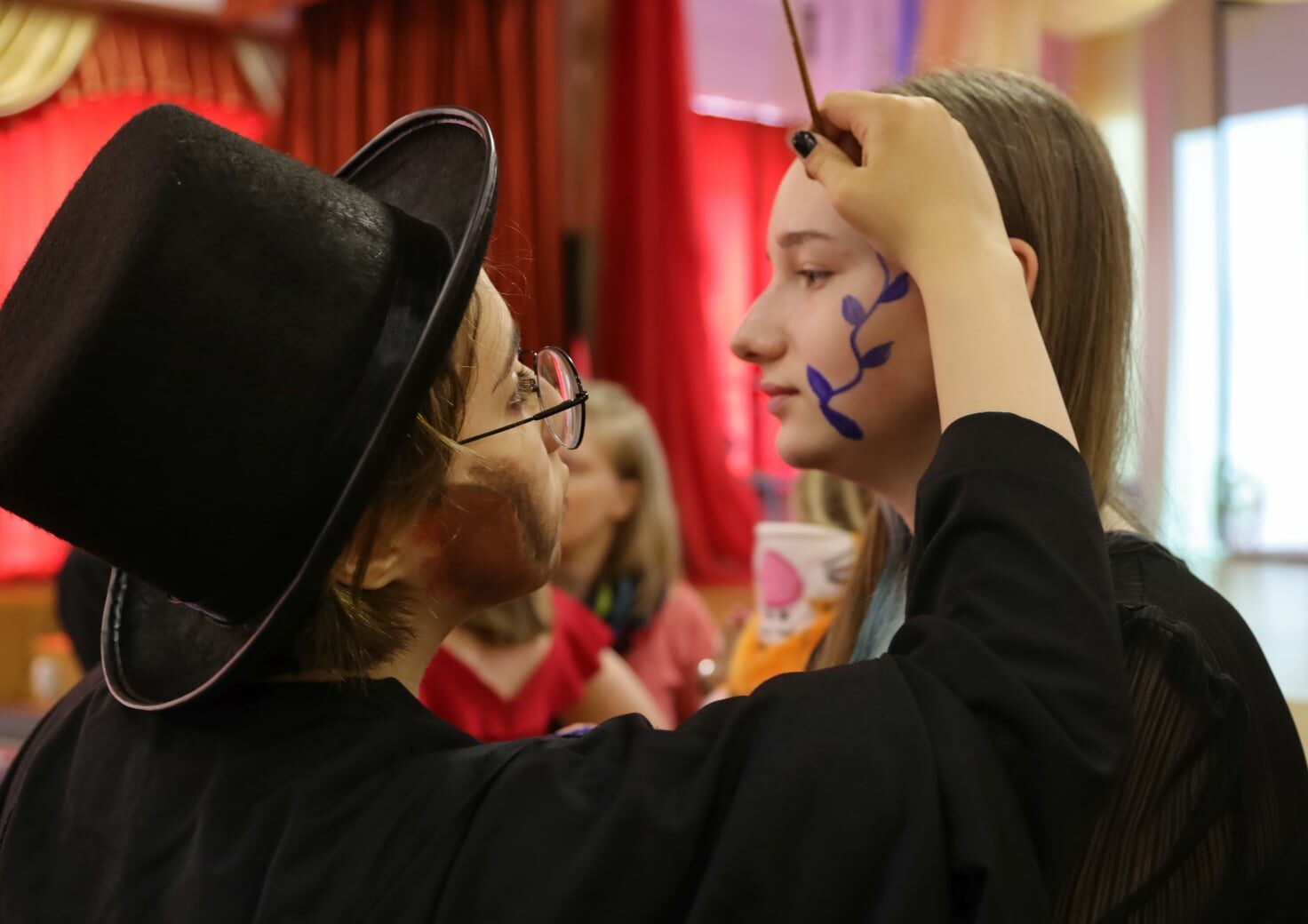On June 6, 2024, with the support of Tochka Kipeniya MSUPE, the reading club Co-Authorial Reading (as part of the series Science in Publications) hosted a meeting on the topic “Theatre as a Technology of Learning and Development: Experience of Working with Adolescents.” More than 90 participants from over 30 cities in Russia and abroad attended the event, including representatives from Moscow, St. Petersburg, Astrakhan, Barnaul, Belgorod, Voronezh, Guryevsk, Yoshkar-Ola, Kazan, Kaluga, Kemerovo, Kislovodsk, Konstantinovsk, Lipetsk, Nikolsk, Novoaydar, Novosibirsk, Pyatigorsk, Saransk, Seversk, Simferopol, Smolensk, Syktyvkar, Tula, Shadrinsk, Yaroslavl, as well as Almaty (Kazakhstan).
Speakers included Olga V. Rubtsova, PhD in Psychology, Head of the Center for Interdisciplinary Research on Contemporary Childhood (MSUPE), and Tatyana A. Poskakalova, research fellow of the same center. They shared insights from their five-year experience implementing school theatre for adolescents.
According to the specialists, effective forms of learning for adolescents are those that allow them to engage in “trial actions,” make independent decisions, and take responsibility for their consequences. Theatre provides a space for experimenting with roles, positions, and relationships.
Participants were introduced to video materials from the Multimedia Theatre research project, including fragments of performances, interviews, and an animated film created by adolescents. The presentation highlighted that the Multimedia Theatre model emphasizes not so much the dramatic outcome of a performance as the process of preparation itself, where participants engage in diverse activities (choosing themes and plots, writing scripts, distributing roles, preparing costumes and stage sets, etc.). Particular attention was paid to multimedia content created in the course of preparing productions.
Over the five years of the project, researchers conducted more than 175 sessions with over 270 adolescents. The results showed significant improvements in communication skills, organizational abilities, goal-setting, school motivation, as well as reductions in bullying, conflicts, and other risk factors.
The presentation sparked lively interest among participants, who asked questions about repertoire selection, integrating theatre into the school schedule, rehearsal and performance spaces, and how to handle multiple students competing for the same role.
The video recording of the event is available on the YouTube channel of PsyJournals.ru.
Source: PsyJournals.ru


